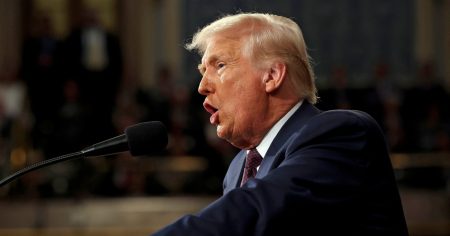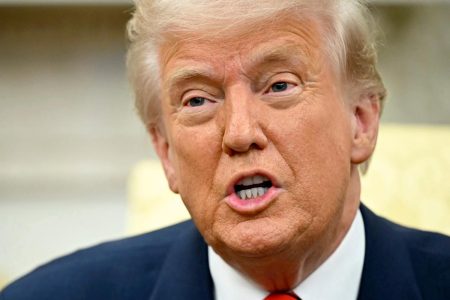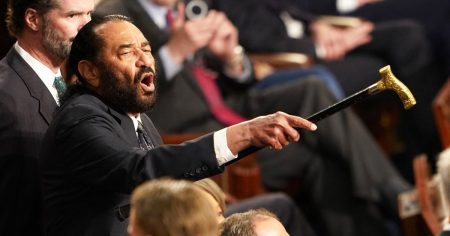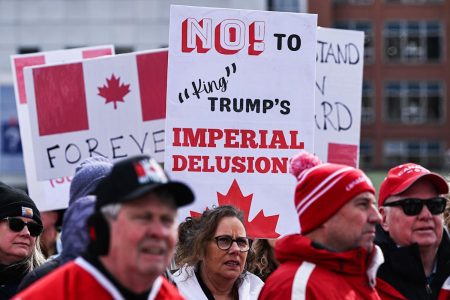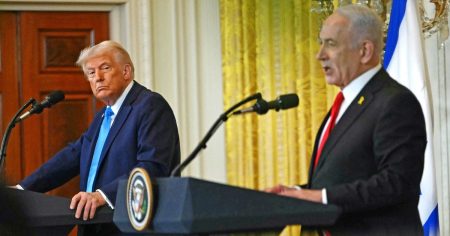White House Border Czar Denies Quid Pro Quo Allegations with NYC Mayor Eric Adams
The political landscape between the Trump administration and New York City Mayor Eric Adams has become increasingly contentious, with allegations of a quid pro quo arrangement surfacing in recent weeks. At the center of the controversy is Tom Homan, the White House border czar, who has vehemently denied any such deal between the administration and Mayor Adams. During a CNN interview on Sunday, Homan dismissed the idea that the Justice Department dropped criminal charges against Adams in exchange for his cooperation on immigration policies, calling the notion "ridiculous."
Homan’s remarks came in response to a question from CNN anchor Dana Bash, who pointed out the timing of the Justice Department’s decision to dismiss the case against Adams and the mayor’s subsequent agreement to allow U.S. Immigration and Customs Enforcement (ICE) agents to operate at Rikers Island, New York City’s notorious jail. Homan insisted that the two developments were unrelated and that discussions about access to Rikers Island had been ongoing for months. He emphasized that his focus was on collaboration to reduce illegal alien crime in New York City, not on striking a political bargain.
A "Cop to Cop" Conversation: Homan and Adams’ Meeting
On Thursday, Homan and Adams met in a closed-door session, where Adams reportedly agreed to grant ICE agents access to Rikers Island. The meeting was followed by a joint interview on “Fox & Friends” on Friday, during which Homan adopted a tough tone, suggesting he would hold Adams accountable for following through on his commitments. Homan, a former ICE director under President Donald Trump, described the interaction as a “cop to cop” conversation, framing it as a professional exchange rather than a political negotiation.
Homan’s choice of words during the Fox interview raised eyebrows, as he stated, “I came to New York City and I wasn’t going to leave with nothing,” and added that he would be “in his office, up his butt” if Adams did not deliver on his promises. While some interpreted this as a veiled threat, Homan maintained that the discussion was straightforward and focused on shared goals of reducing crime and identifying dangerous illegal aliens in New York City.
The Justice Department’s Decision to Dismiss Charges Against Adams
The Justice Department’s decision to drop corruption charges against Adams has been a flashpoint in the controversy. The case against Adams, who was indicted last year on bribery and fraud charges, was dismissed on Friday, with Acting Deputy Attorney General Emil Bove arguing that the case interfered with Adams’ ability to assist the administration in tackling illegal immigration. This move was met with internal dissent within the Justice Department, leading to at least seven resignations, including that of Danielle R. Sassoon, the top federal prosecutor in Manhattan.
Sassoon, a conservative and former clerk for the late Supreme Court Justice Antonin Scalia, submitted a sharply worded resignation memo to Attorney General Pam Bondi. In the memo, Sassoon alleged that during a Jan. 31 meeting with Bove and Adams’ lawyers, the mayor’s attorneys proposed what amounted to a quid pro quo, suggesting that Adams would cooperate with the administration’s enforcement priorities only if the charges against him were dismissed. Sassoon’s resignation and memo have fueled speculation about the nature of the agreement between Adams and the Justice Department.
Adams Denies Allegations of Quid Pro Quo
Despite the swirling allegations, Adams and his legal team have categorically denied any suggestion of a quid pro quo arrangement. Adams, who was elected mayor in 2021 and is currently seeking re-election in November, has pleaded not guilty to the bribery and fraud charges brought against him. He has consistently maintained that the charges are politically motivated and that he is innocent. His lawyer, Alex Spiro, has also denied any wrongdoing, dismissing claims of a quid pro quo as baseless and unfounded.
Adams’ stance is further complicated by the fact that he has positioned himself as a key ally for the Trump administration on immigration issues, particularly in New York City. His cooperation with ICE and his willingness to grant access to Rikers Island have been seen as significant concessions to the federal government, leading critics to question whether such actions were taken in exchange for favorable treatment in his legal case.
The Fallout and Implications
The fallout from the Justice Department’s decision to dismiss the charges against Adams has been significant, with several high-ranking officials resigning in protest. The internal mutiny within the DOJ suggests deep divisions over the handling of Adams’ case and raises questions about the independence of the Justice Department under the Trump administration. Critics argue that the dismissal of the charges undermines the integrity of the legal system and creates the perception that political favors can influence the outcome of criminal cases.
Homan, meanwhile, has sought to downplay the controversy, framing his interactions with Adams as a straightforward, professional collaboration aimed at addressing illegal immigration and crime in New York City. He has dismissed suggestions of a quid pro quo as unfounded and overblown, emphasizing that the focus of their discussions was on public safety and shared goals.
However, the timing of the Justice Department’s decision and the subsequent cooperation between Homan and Adams have inevitably raised eyebrows. While both men have denied any improper arrangement, the sequence of events has created a narrative that continues to fuel speculation and criticism from political opponents and legal observers alike.
As the controversy unfolds, one thing is clear: the relationship between the Trump administration and Mayor Adams has become a focal point in the broader debate over immigration, law enforcement, and political ethics. Whether the allegations of a quid pro quo are proven or dismissed, the episode has already left a lasting impact on the political landscape, raising important questions about the boundaries between law enforcement, politics, and justice.



